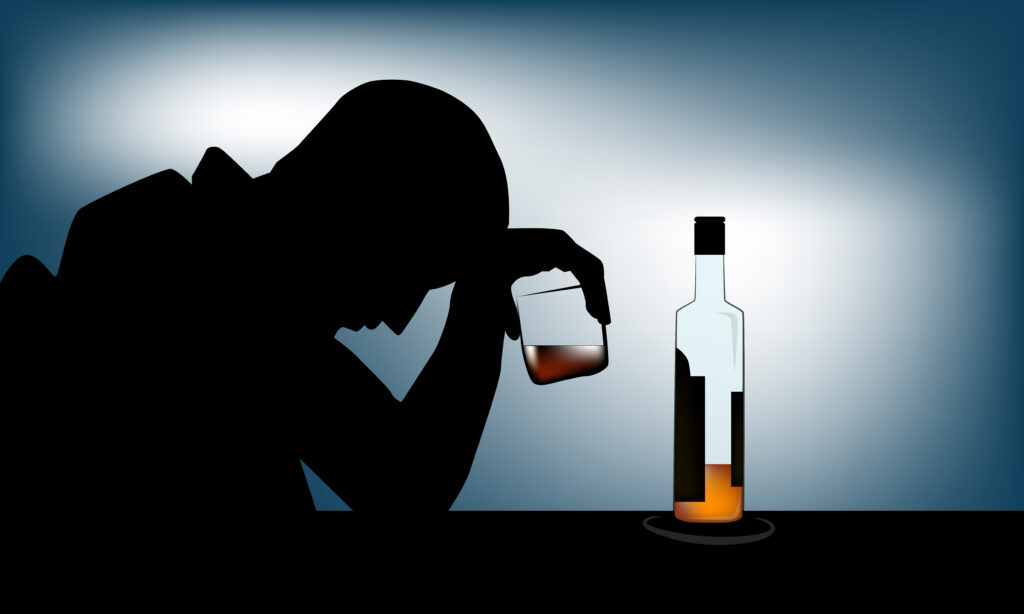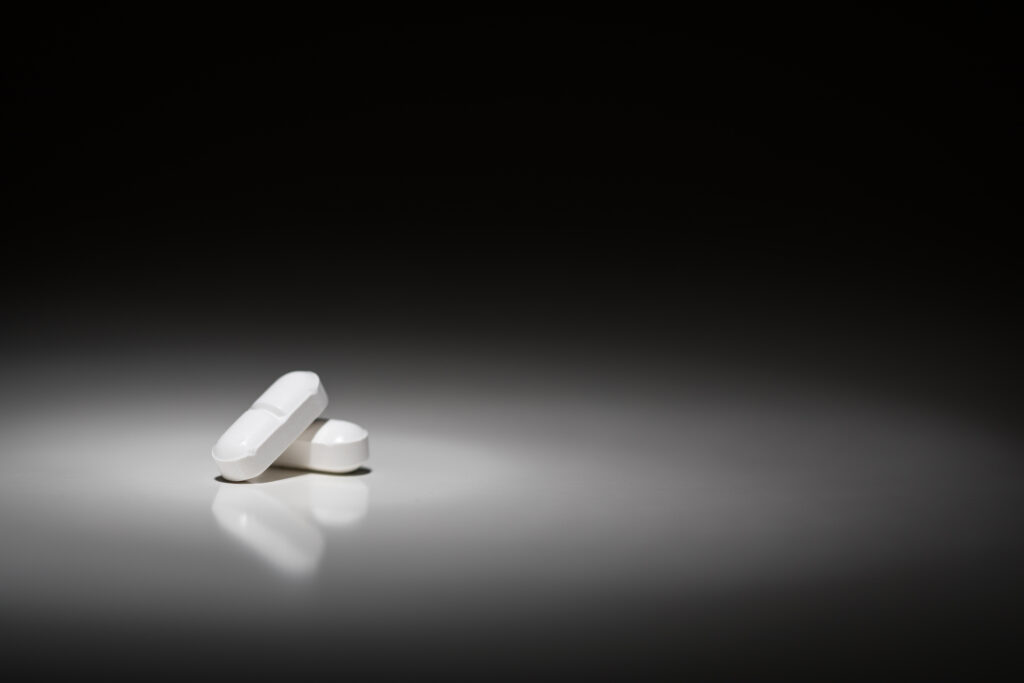Are Percocet Addictive?
Are Percocet addictive? The answer is yes. Percocet is a powerful and addictive drug, and it can be challenging to recognize the signs of addiction. If you or someone you love is struggling with addiction, seeking help is essential. There are a number of treatment options available, and with the proper support and treatment, recovery is possible. At Next Wind Recovery, clients have access to high-quality addiction treatment designed to support their progress through recovery and toward sobriety. Next Wind Recovery is a top-rated drug rehab in New Jersey. Access your free consultation today to learn more about the recovery programs available at Next Wind Recovery. What Are Percocet? Percocet is a combination of oxycodone and acetaminophen. Together, they work to reduce pain and inflammation. Percocet is prescribed for moderate to severe pain and is effective for both short-term and long-term pain relief. It’s important to note, however, that Percocet is a controlled substance, so patients should only use this medication under the supervision of a medical professional. Next Wind Recovery is a New Jersey outpatient rehab center that can help you overcome addiction. How Does Percocet Affect the Brain and Body? Percocet works by binding to opioid receptors in the brain and spinal cord. When this happens, it blocks pain signals from being transmitted. It also stimulates the release of endorphins, which are natural chemicals in the body that produce a feeling of euphoria. This is one of the reasons why Percocet is so addictive – it creates a feeling of pleasure that many people find hard to resist. Percocet also has an anti-inflammatory effect, which helps reduce pain and swelling. The combination of these two effects makes Percocet an effective pain treatment. However, it’s important to note that Percocet can also be abused and can lead to addiction. Percocet can cause liver damage and respiratory depression, lead to an increase in accidents and injuries, and overdose. Percocet can also increase the likelihood of developing depression, anxiety, and other mental health issues. Side Effects of Percocet Like all medications, Percocet has side effects that can range from mild to severe. The most common side effects include nausea, vomiting, constipation, dizziness, and drowsiness. Other side effects may include confusion, headaches, blurred vision, and irregular heartbeat. It’s important to note that taking Percocet can also increase your risk of developing an addiction, so it’s important to talk to your doctor about the potential dangers. It’s also important to note that the side effects of Percocet can be more severe in certain people. For example, people with liver or kidney disease may experience more severe side effects. It’s also important to note that taking Percocet can interact with other medications, so it’s important to talk to your doctor about any other medications you’re taking before you start taking Percocet. Treatment Options for Percocet Addiction There are a number of treatment options available for Percocet addiction. The most effective treatment is a combination of medication and psychotherapy. Medicines like buprenorphine and methadone can help reduce cravings and withdrawal symptoms, while therapy can help a person identify underlying issues that may be contributing to their addiction. In addition to medication and treatment, support groups can also be helpful. Support groups like Narcotics Anonymous (NA) offer a safe space for people to talk about their struggles with addiction and find support from others who are going through the same thing. Finally, it’s important to remember that recovery is a journey and not always easy. It’s important to be kind to yourself and to take things one day at a time. With the right support and treatment, recovery is possible. Find Percocet Addiction Treatment in New Jersey. Through Next Wind Recovery, clients receive compassionate care designed to support their mental, physical, and emotional well-being. Our holistic treatment approach helps clients heal from traumas and physical addiction to substances. We believe in a combination approach that includes traditional therapies and medication treatments that promote total body wellness and healing. We also offer dual-diagnosis treatment options for clients struggling with anxiety, depression, PTSD, and other mental health disorders. This program combines the necessary mental health treatment for both addiction and mental health disorders, medication management to support mental wellness and therapeutic support that promotes healing and positive growth toward recovery goals. Learn more about the treatment options available at Next Wind Recovery in New Jersey today.
How Does Alcohol Affect the Body?

The body is solid and resilient but can be beaten up, torn down, and rotted from the inside out. Alcohol affects the body by slowing down normal processes. While often minimal, it can be highly damaging in the long run. To learn more about how alcohol affects the body, check us out at Next Wind Recovery. Our comprehensive New Jersey outpatient treatment facility offers support options for those ready for their Next Wind. How Does Alcohol Affect the Body? Alcohol use is so common that many don’t fully comprehend the impact alcohol can have on a person’s body. When an individual drinks alcohol, they will notice some basic reactions to it. They may feel flush, notice their reaction time is slowed, or react differently than expected. These side effects, while common, are only early-onset reactions to the substance. Alcohol is actually a depressant. While some may feel more energetic and lively, and have less stress or social anxiety while drinking, this is a reaction to alcohol’s depression or slowing of functions in the brain. When alcohol affects the body, it delays the ability to process information and reduces the heart rate. This creates a phenomenon for people with high anxiety and stressors where the alcohol seems to bring them to life because they aren’t feeling their typical stress indicators. Is Alcohol Addictive? Alcohol, while safe to consume for adults, can be addictive if not consumed safely. Individuals who over-indulge, binge drink, or drink while using other substances, are at a higher risk of developing an addiction to the substance. Drinking too much too frequently can reduce alcohol’s effects on the body. This is called tolerance, and individuals who develop a tolerance need to drink more alcohol to get the same feeling they did when they first started drinking. While some level of tolerance is acceptable, it is one of the initial warning signs of addiction. Another danger that increases the potential for addiction is binge drinking. Binge drinking is when an individual drinks more than what is considered safe for their gender, body type, and size. This can lead to an overabundance of alcohol in the body’s system. When the body can not process the alcohol fast enough, it can cause individuals to be unable to control their body, lowering reaction time and causing memory loss, known as a “blackout.” Lastly, individuals who drink alcohol while taking another substance are also at higher risk for developing an addiction to alcohol. Because of how alcohol affects the body, combined with another substance, a depressant, or painkiller, this can cause extreme depression in the body’s system. Overdoses with combined substances have been linked to comas, strokes, heart attacks, and death. What Are the Effects of Alcohol Abuse? Individuals who drink alcohol and become addicted to it don’t just have short-term problems to deal with. The effects of alcohol abuse on the body can be a lifelong struggle. Psychologically, individuals may deal with the after-effects of alcohol for the rest of their life. Alcohol addiction can cause depression and anxiety, and can be associated with other diagnosable mental health disorders. Individuals addicted to alcohol experience more major depressive episodes than those who do not. The effects of alcohol abuse are also linked to sleep disorders and suicidal thoughts and tendencies. Alcohol can also be associated with dramatic changes in personality and reactions to stressful situations. The effects of alcohol abuse can have long-term effects on the body as well. Physically, clients have a higher risk of developing certain types of cancer. They are at a higher risk for liver failure because of how alcohol gets filtered out of the blood system. Following alcohol addiction, individuals may get more infections and have more severe illnesses. How to Find Alcohol Addiction Treatment in New Jersey When considering how alcohol affects the body and how to find addiction treatment programs in New Jersey, it is essential to consider the client’s needs and how local therapy in New Jersey can help. Next Wind Recovery, located in Teaneck, NJ, provides supportive outpatient opportunities for clients ready to change their lifestyles. Our medical professionals work with clients through individual and group therapies to help them achieve their sobriety goals. At Next Wind, we realize that with addiction often comes addiction mental health concerns that must be addressed to treat the whole patient. That is why we offer dual diagnosis treatment for our clients. By treating our client’s mental and physical health concerns, they can focus on total mind and body wellness. Learn more about how alcohol affects the body by speaking with a Next Wind Recovery NJ counselor.
What is the Timeline for Heroin Withdrawal?

Identified a century ago as a potentially addictive and dangerous drug, heroin use has continued across the globe. Heroin is often looked at as a gateway drug to harder drugs as it is easy to access and extremely addictive. Many individuals claim that heroin was their first illegal drug use. At Next Wind Recovery, we want to help clients achieve and maintain long-term sobriety. Through this process, we offer comprehensive addiction and mental health care that encourages personal growth and life-long change. Next Wind Recovery is a top-rated drug rehab in New Jersey. Talk with someone from Next Wind Recovery about detoxing from heroin today. What is Heroin? Heroin is a narcotic that relieves pain while creating a calming and euphoric high. Heroin is an extremely effective painkiller with addictive qualities. Heroin, while it has previously been used in medical procedures, was found to be so detrimental to the recovery process of clients that it was made illegal in 1924. This illegal opioid narcotic was the most commonly used illegal painkiller until the introduction of fentanyl in the 1980s. Heroin acts like other common prescription painkillers and is often the first illegal drug that individuals use following problematic use with prescription opioids. Additionally, individuals who use heroin often struggle with other illegal drugs as well, using heroin as a boost because of its’ low cost and how easily they can access it. How Does Heroin Affect the Body? Heroin is a very versatile opioid. Individuals looking for heroin can find it in pill, powder, or liquid form, each producing a slightly different high that impacts the body at various speeds. Individuals who inject heroin with a needle can expect to experience a rushing high with an immediate impact. However, it also wears off more quickly, while individuals who ingest the drug in pill form should expect a longer-lasting high that starts more gradually. When an individual uses heroin, they can expect to feel a calming euphoria connected with pain relief. Heroin blocks the opioid pain receptors in the body, preventing the nerves from identifying pain. In doing so, there is a rush in the brain’s reward center. This rush that creates the calming euphoria is what increases the likelihood of becoming addicted to heroin. Heroin becomes addictive when an individual can not stop using it, chasing the high and pain relief it brings. What are the Symptoms of Heroin Withdrawal? Following heroin addiction, individuals can expect to have some moderate to severe physical, emotional, and mental withdrawal symptoms. Heroin is a drug that impacts the brain and body equally, making the withdrawal process difficult to manage independently. The physical symptoms of heroin withdrawal often include increased pain in the body. Muscle aches, uncontrollable twitching, and joint pain are every day due to overactive nerves. Clients can also expect difficulty sleeping, nausea, weight loss, and diarrhea. However, sometimes the mental and emotional symptoms of heroin withdrawal can be an even more difficult challenge. During the withdrawal period, individuals can expect to experience cravings, depression, anxiety, and mood swings. Heroin has been found to alter the brain’s white matter, changing reactions to stressful situations and decision-making. What is the Timeline for Heroin Withdrawal? The timeline for heroin withdrawal can vary dramatically depending on the support system individuals choose to utilize. Those who attempt to undergo heroin withdrawal independently can expect to experience more severe symptoms with a longer recovery timeline. In contrast, individuals who use a detox center or are medically supervised during withdrawal often experience a shorter and less painful withdrawal due to medications and medical support available throughout the withdrawal process. Typically, individuals begin to feel withdrawal effects in the first 8-16 hours following the last use. Initial symptoms include flu-like symptoms and cravings. Symptoms of withdrawal typically peak in the first 72 hours. At this point, symptoms are the most different for those with support and those going through it independently. Initial withdrawal symptoms can last up to 10 days, but the psychological symptoms of addiction can last for an additional six months. Anxiety, depression, and sleep problems are expected early in rehabilitation treatment and can be more severe if an individual does not utilize treatment. Next Wind Recovery Offers Heroin Addiction Treatment in New Jersey At Next Wind Recovery, we offer intensive outpatient treatment in New Jersey to help clients through the initial stages of withdrawal and addiction treatment. Our New Jersey addiction treatment center offers clients a safe and supportive environment to work through a holistic treatment plan designed to support their physical, mental, and emotional health. Our comprehensive treatment center offers active options with additional aftercare support for individuals who graduate from our treatment programs. What makes us incredibly unique is our different mental health treatment options that individuals can combine with our addiction therapy to provide inclusive treatment options for individuals struggling with mental health diagnoses and addiction. To learn more about heroin addiction treatment at Next Wind Recovery, speak with a counselor today.
How Do Opioids Affect the Body?

Over the last few years, one of the fastest-growing trends in drug addiction has been opioids. Though their use has been evident for centuries, in the 21st century, they are known for their dramatic impact on overdose statistics and their potency. The opioid epidemic has impacted hundreds of thousands of lives in the last five years alone. To learn more about our opioid addiction treatment program at Next Wind Recovery, speak with an admissions coordinator today. Next Wind Recovery is an outpatient rehab center in New Jersey that offers opioid addiction treatment programs. Contact us today to learn more. What Are Opioids? Most commonly known as painkillers, opioids and opiates are narcotics that alter an individual’s capacity to identify pain. Individuals can be prescribed opioids for several different kinds of pain. As a medication prescribed by a doctor, opioids are known by their brand names; morphine, hydrocodone, and oxycodone, to name a few. Illegal opioids exist as well. The most common illicit opioids are heroin and fentanyl. Opioids are closely monitored prescriptions because of their ability to affect the physical and mental health of the individual taking them. Opioids are naturally occurring and have been on the market for over a century. During this time, medical professionals have focused on rehabilitative treatments and medical breakthroughs to support individuals that do become addicted. There are several overdose medications available for individuals at risk for an opioid overdose, as well as several Medication Assisted Treatment programs that help individuals while they are attempting to recover from opioid abuse. How Do Opioids Affect the Body? Opioids can affect the mental and physical health of the individual taking them. Their impact on an individual can be as severe as death if their use is not regulated. The effects of opioids on the brain can be some of the most damaging. While initially, opioids cause a reaction in the reward center, the systems in the body can become so dependent on this change that the individual becomes unable to stop taking the medication that causes this altered state, and they become addicted to it. Addiction is a damaging cycle complex for individuals to overcome, especially those with chronic pain, pain related to an injury, or mental pain from trauma. While the cognitive effects of opioids can take a while to become noticeable, the physical changes due to opioid use can be immediate. Taking too much of an opioid causes the systems in the body to shut down, resulting in death. Overdoses due to opioids are at epidemic levels. In 2022, more than 100,000 people in the United States died from an opioid overdose. Physically, to prevent pain, opioids block the opioid pain receptors and slow down the systems in the body. Immediate side effects of taking an opioid include nausea, constipation, lethargy, and dry mouth. Individuals who take too much of an opioid often nod off, unknowingly losing consciousness due to the drugs. Why Are Opioids So Addictive? Opioids are so addictive because of the impact they have on the brain. When an individual misuses opioids by taking too much, taking it too frequently, using it without a prescription, or taking it with other contraindicated drugs, it changes the way the brain processes the medication. The activation of the reward center due to the lack of pain can become addictive. It can also slow an individual’s processing and delay their cognitive ability to reason, focus, and elaborate. The pain-free feeling and the cravings opioids create in the body are challenging to ignore. Individuals addicted to prescription medications often transition to illegal opioids after misusing their prescriptions. Those who start with illicit opioids and unregulated use often experience overdoses and transition to more problematic opioids as their use progresses. How to Find Opioid Addiction Treatment in New Jersey At Next Wind Recovery, we are ready to help individuals on their path to long-term sobriety from opioid addiction. While the effects of opioids can damage the individual, our recovery programs are designed to support mental and physical health progress through treatment and recovery. Medical professionals have developed our opioid addiction treatment program to provide the highest quality of care in our New Jersey addiction treatment and mental health treatment programs. Through a diligent focus on recovery, we support our clients through structured counseling and outings, teaching people to live drug-free again. Learn more about the opioid addiction treatment program at Next Wind Recovery, New Jersey.
Is Vicodin Addictive?

When individuals fall and hurt themselves and require pain management, there are a number of prescription medications that medical professionals may prescribe. One of these opioid options is called Vicodin. This pain management medication has many uses to support individuals in severe pain but has many unwanted side effects as well. At Next Wind Recovery, our New Jersey addiction treatment program provides supportive care for individuals with addiction to prescription medication and those who are addicted to illegal drugs. Individuals in our program will receive compassionate care designed to comfort and encourage personal growth through recovery. Next Wind Recovery is a top-rated drug rehab in New Jersey. Learn more about our treatment for Vicodin addiction today at Next Wind Recovery. What is Vicodin? Vicodin is the brand name for a medication called hydrocodone. Hydrocodone is a painkiller medication that works to help people experiencing severe pain from a number of causes. This prescription medication is monitored closely by medical professionals due to the increased risk of addiction and overdose that this medication has. Vicodin, like many painkillers, has a number of uncomfortable and unwelcome side effects. It can impact a person’s digestive system making it difficult to eat, increasing feelings of nausea and even vomiting, and frequently causing constipation. Medications like Vicodin can also cause delayed breathing, hallucinations, and changes in menstruation. How is Vicodin Used? Vicodin is a unique medication that has many uses and fits into several important categories. Hydrocodone is a narcotic analgesic. This means that it works as a painkiller to relieve severe pain. However, hydrocodone is also an antitussive; this means that it works to stop individuals from coughing. This means that it is sometimes added to medications like cough syrup. Is Vicodin Addictive? Vicodin is an addictive prescription medication for which people can develop a tolerance for it, a dependence on it, and addiction. When an individual begins to develop a tolerance for Vicodin, the medication stops being as effective as it was initially. As a result, Vicodin’s effects lessen, and an individual may be tempted to change how much or how often they are taking the medication. However, many individuals don’t know that this first misuse step is the leading step toward addiction. When an individual begins to take the medication when they feel they need it, their body begins to develop a dependence on the medication. Taking it when they “feel like they need it” sends the brain a message that the medication will take the pain away when they hit that level. The body will then start to crave and need the medication when pain is experienced, creating a dependency on the drug based on the perceived need developing into a real need. Addiction is the final step in this process and occurs when an individual is unable to stop using, even when they recognize the damage or problems it may be causing. Addiction is when the body sends signals that it needs the medication and overrides rational thought against use. This can be dangerous and can lead to many adverse and severe side effects. What are the Symptoms of Vicodin Withdrawal? When an individual chooses to go through Vicodin withdrawal, they can expect to feel under the weather for 7-10 days, feeling the worst in the first 72-96 hours. Individuals will also experience a number of physical and psychological symptoms during the withdrawal period that can act as a deterrent from sticking to the idea of getting clean. Individuals who withdraw from Vicodin often experience physical symptoms of diarrhea, chills, stomach cramps, and vomiting. In addition, this stage of withdrawal is often associated with a nasty flu-like experience. But it can be even worse when the psychological symptoms are added on. When going through Vicodin withdrawal, individuals can often feel anxious, depressed, tired, and have mood swings that make emotional regulation during this period difficult. How to Find a Vicodin Detox Program in New Jersey At Next Wind Recovery, our goal is to support our clients through compassionate and comprehensive addiction treatment. Our New Jersey outpatient addiction treatment program offers multiple levels of intensity to help those in need. With additional aftercare services, we encourage clients to build a support system through our treatment center that extends beyond active care. Learn more about the Next Wind Recovery treatment programs available to support individuals with an addiction to Vicodin.
Can Anxiety Cause Alcoholism?

Anxiety is a crippling mental disorder that is common in the United States. According to data provided by the Anxiety and Depression Association of America, 40 million Americans aged 18 years and older experience anxiety. While anxiety is highly treatable, many people don’t seek treatment. Instead of seeking professional help, people suffering from anxiety often turn to substances such as alcohol to cope with their feelings. While alcohol may provide temporary relief, it is a short-term solution. Without professional intervention, anxiety will grow worse over time—and people may develop a dependence on alcohol. This article will answer the question, can anxiety cause alcoholism? We will further define anxiety and its impacts on behavior. Additionally, you will learn more about the connection between alcohol abuse and anxiety. Most importantly, you will learn where you can find treatment for both anxiety and alcoholism. Are you struggling with alcoholism and anxiety and need help? Call Next Wind Recovery toll-free today and learn more about our evidence-based addiction treatment programs in New Jersey. What is Anxiety? Anxiety is defined as strong feelings of fear, dread, and uneasiness. When you experience anxiety, you may sweat, feel restless and tense, and you may have a rapid heartbeat. More often than not, anxiety is the result of stresses in your environment, such as test taking, making an important decision, or getting stuck in rush hour traffic. In most cases, anxiety subsides when the stress subsides. However, there are those who experience anxiety that lingers long after the threat dissipates. In these cases, the panic and anxiety they feel impact how they live their daily lives. When anxiety reaches these levels, people may experience an anxiety disorder. Anxiety disorders rule people’s lives, and they may start avoiding the people and places that may trigger their anxious feelings. In many cases, people with anxiety disorders fear people, places, and objects which don’t pose a threat. How Does Anxiety Impact Behavior? Anxiety impacts behavior in a variety of ways because there are several types of disorders that fall under the anxiety umbrella. Depending on the specific disorder, people can experience different behaviors. For example, For example, people who experience generalized anxiety disorder may experience these symptoms: On the other hand, those with panic disorder may experience the following: People with social anxiety disorder may display the following symptoms: Can Anxiety Cause Addiction? Can anxiety cause addiction? Definitely. As stated before, anxiety is a condition that is highly treatable with professional help. However, many people are hesitant or don’t seek treatment due to the stigma surrounding mental illness. For many who suffer, seeking help for their anxiety makes them feel “broken” and not worthy of help. To deal with their feelings and emotions, they will turn to alcohol to cope. While alcohol can numb and mute those feelings, it is a blanket solution. Without dealing with the underlying issues, the feelings of intense anxiety will return, and people will drink more alcohol as their tolerance increases. Not only does one’s anxiety grows worse, but people also develop an addiction to alcohol. Likewise, using alcohol can be a cause of anxiety. If an individual significantly curbs their intake or stops drinking altogether, it creates a wide range of withdrawal symptoms that can be uncomfortable and painful to endure. One common psychological withdrawal symptom is anxiety. Depending on the amount of alcohol consumed, the frequency in which it is consumed, the quantity, and other underlying issues, the anxiety one feels can be unbearable and difficult to shake. Since brain chemistry is significantly altered due to chronic alcohol misuse, it is possible for people to develop substance-induced anxiety disorders. How to Treat Anxiety and Alcohol Use Disorders For those who experience anxiety and alcoholism, there are many rehabs offering dual diagnosis treatment. In this specialized treatment program, mental health and addiction professionals work side by side to create an individualized treatment plan that addresses both alcohol abuse and anxiety. In cases where loved ones are resistant to treatment or are having great difficulty in a treatment program, programs centered on anxiety interventions for adults are extremely beneficial. If you are dealing with an anxiety disorder and alcoholism, Next Wind Recovery can help. We are a top-tier New Jersey dual diagnosis treatment program featuring a dynamic fusion of addiction and mental health treatment. Our New Jersey outpatient treatment program is evidence-based and individually tailored to meet your specific needs. No matter the severity of your dual diagnosis, the experienced professionals at Next Wind Recovery will give you the tools and support you need to rise above and reclaim your life. Begin your transformation today and call Next Wind Recovery.
How Does Depression Affect Drug Use?

Depression is a common and often harrowing mental illness. The following statistics provided by the National Institute of Mental Health (NIH) drive home that point: Depression is not merely being “down in the dumps”; it is a serious mental illness that severely impacts people’s lives. For some people dealing with depression, they turn to substances as a coping mechanism. This article will focus on how depression affects drug abuse, the signs of depression, and what treatment options are available for depression and addiction. Call us today to learn more about our addiction treatment programs in New Jersey. What is Depression? Commonly known as major depressive disorder, depression is a mood disorder that causes persistent feelings of sadness and loss of interest. Going beyond a simple case of the “blues,” depression affects how you feel, think and behave and can lead to a variety of emotional and physical problems if left untreated. To be officially diagnosed with depression, people must exhibit symptoms for at least two weeks prior to diagnosis. The criterion for depression diagnosis can be found in the DSM-5 and are as follows: For many people, experiencing these symptoms may lead them to drugs and alcohol. As you will see later in the article, substance abuse and depression are strongly tied together. What Are The Symptoms of Depression? The signs of depression widely vary from person to person since there are several depressive disorders that fall under the depression “umbrella.” These disorders include the following: While each disorder has unique characteristics, there are common symptoms of depression, including the following: There are also additional symptoms such as self-harm or cutting and substance abuse. Regarding substance abuse, the big question people ask is if depression causes substance abuse, and the short answer is yes. How Does Depression Affect Drug Use? The main way depression affects drug use is the fact that people turn to substances before seeking professional help. This is due to the prevailing stigma of mental illness. In many ways, using substances as a coping mechanism allows people to hide their depression from others. While drugs and alcohol do provide short-term relief from the effects of depression, it is a “blanket” solution at best. Without dealing with the underlying causes of depression, people will continue to use substances to a greater degree and may become addicted to substances as well. Another way that depression affects drug use is that some substances will worsen the depression. For example, alcohol is a potent depressant that can make feelings worse once its effects diminish. For those who use stimulants such as cocaine or meth, the immense rush of euphoria and energy are replaced by more intense feelings of depression once the effects of the drug wear off. To prevent those feelings from returning, people will continue to use drugs, worsening their condition. Are There Treatment Programs for Depression and Addiction? If you or a loved one struggle with both depression and addiction, you have a condition known as dual diagnosis. Dual diagnosis requires specialized treatment, and many drug treatment facilities feature dual diagnosis treatment programs. New Jersey dual diagnosis programs feature mental health and addiction treatment professionals working side by side to create a comprehensive treatment plan that addresses both depression and addiction. Components of dual diagnosis treatment include: As one of New Jersey’s top drug treatment centers, Next Wind Recovery features evidence-based treatment programs specifically designed to help you address and overcome depression and addiction. Our experienced team of professionals will work with you and design a customized treatment program that perfectly fits your needs. Don’t let substance abuse and depression ruin your life; call Next Wind Recovery and reclaim control of your life.
What Are the Signs of Cocaine Use?

Cocaine is a popular illicit drug found in many countries, and a significant challenge to public health. Millions of people worldwide suffer from cocaine addiction, and the impact is tremendous—the symptoms of cocaine use change from one individual to the next. The reason has to do with body weight and behavioral patterns. Most times, people don’t intend to abuse cocaine. They want to enjoy the euphoric feeling it brings. However, a one-time user can become an addict because the intense effects are short-lived. This post will discuss the signs of cocaine use and possible treatment options. If you are looking for cocaine addiction treatment programs in New Jersey, contact Next Wind Recovery today. What is Cocaine? Cocaine is an alkaloid obtained naturally from coca plants. It can also be prepared synthetically and sometimes used medically as an anesthetic during surgery. However, many people know cocaine as an illicit drug that provides a euphoric feeling to users but is detrimental to their mental and physical health. When a person uses cocaine often, it causes the small blood vessels to constrict. Also, it brings a feeling of exhilaration and leads to psychological dependence. What Are the Signs of Cocaine Use? So how can you spot the signs of cocaine abuse in a person? We shall look at obvious cocaine use signs below. How to Treat Cocaine Addiction Although cocaine addiction remains a significant health problem in the United States and globally, the best treatment methods remain a debate among healthcare providers. So as shall look at some of the popular treatment methods below. How to Find Cocaine Addiction Treatment in New Jersey Cocaine addiction is a worldwide phenomenon. If you are in New Jersey, and struggling with addiction, you can easily access one of the best treatment facilities in the country. Cocaine addiction is real, and many addicts don’t know how it can be stopped. If you observe any of the cocaine abuse signs listed here in a loved one, ensure you seek help immediately. Cocaine addiction can be stopped with the right treatment plan. Next Wind Recovery is a comprehensive drug rehab in New Jersey. Contact us today to learn more about how we can help you overcome addiction.
